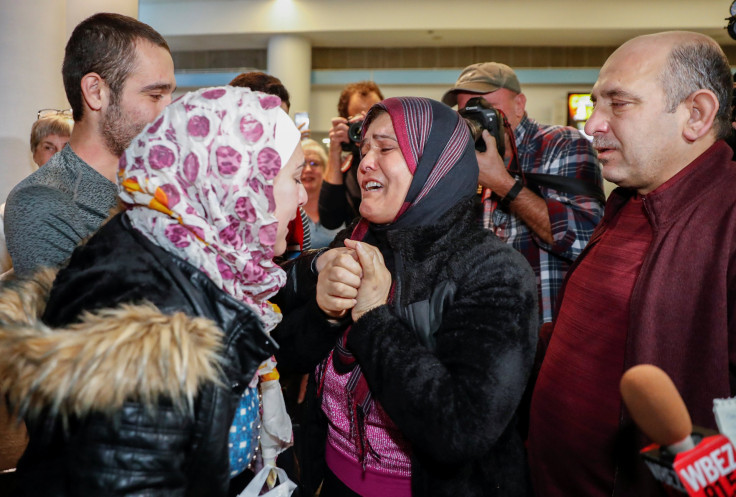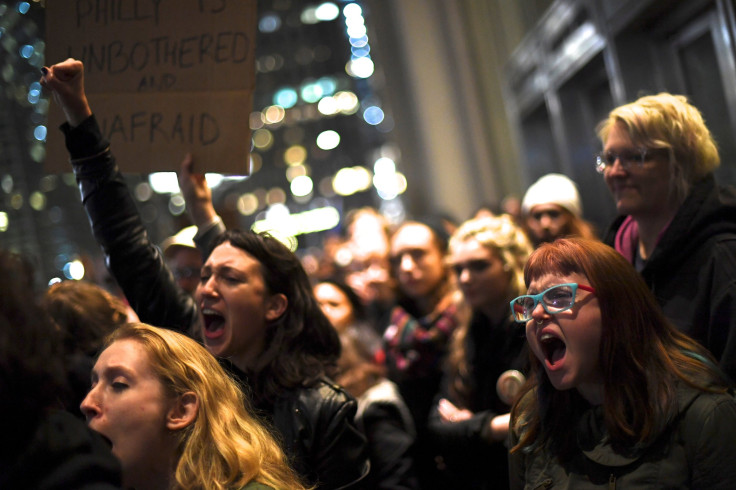Will Trump Win? POTUS Will Take Travel Ban To Supreme Court If He Loses Circuit Battle

President Donald Trump has always been clear about two things: he doesn’t like bad ratings, and he hates when he doesn’t win. The White House is battling in the 9th circuit court of appeals this week to uphold its ban on travel from seven Muslim-majority nations, and is prepared to take the fight to the Supreme Court, the president revealed Tuesday.
Trump’s orders were almost immediately contested by federal judges and attorneys general nationwide, along with countless human rights and activism groups, after being signed on Jan. 27 and going into effect throughout that weekend.
"It's very important. It's very important for the country, regardless of me or whoever succeeds at a later date, we have to have security in our country, we have to have the ability," Trump told reporters Tuesday afternoon, speaking at a White House meeting. "We're not allowed to be tough on the people coming in? Explain that one. So we'll see what happens. We have a big court case, we're well represented, and we're going to see what happens."

The president saw a decline in public approval ratings after his executive orders spurred protests at airports across the country as visa and green card holders were detained by federal and airport officials complying with the travel restrictions. Trump’s first 100 days could easily become the least approved beginning of any president’s tenure in the Oval Office, according to a forecasting report published this week.
The White House has defended Trump's orders, claiming the travel restrictions are only a temporary ban and are well within a president’s constitutional powers. But the state of Washington and organizations rejecting the travel restrictions, including the nonpartisan civil rights organization American Civil Liberties Union, have said Trump’s orders will only worsen the threat of extremism and terror for U.S. citizens, and imposes adverse effects on state economies and industries like tech and science, in which visa holders and other immigrants make daily contributions.
The ACLU hailed a Seattle judge's decision to block Trump’s orders in a statement emailed to International Business Times Saturday. "This ruling is another stinging rejection of President Trump’s unconstitutional Muslim ban," wrote Omar Jadwat, director of the ACLU’s Immigrants’ Rights Project. "We will keep fighting to permanently dismantle this un-American executive order."
Meanwhile, Trump said he remains hopeful he won’t have to take the battle to the Supreme Court, but would await a final decision from the 9th circuit.
"I mean, we'll see," Trump continued. "Hopefully it doesn't have to. It's common sense. You know, some things are law, and I'm all in favor of that, and some things are common sense. This is common sense."
© Copyright IBTimes 2025. All rights reserved.






















